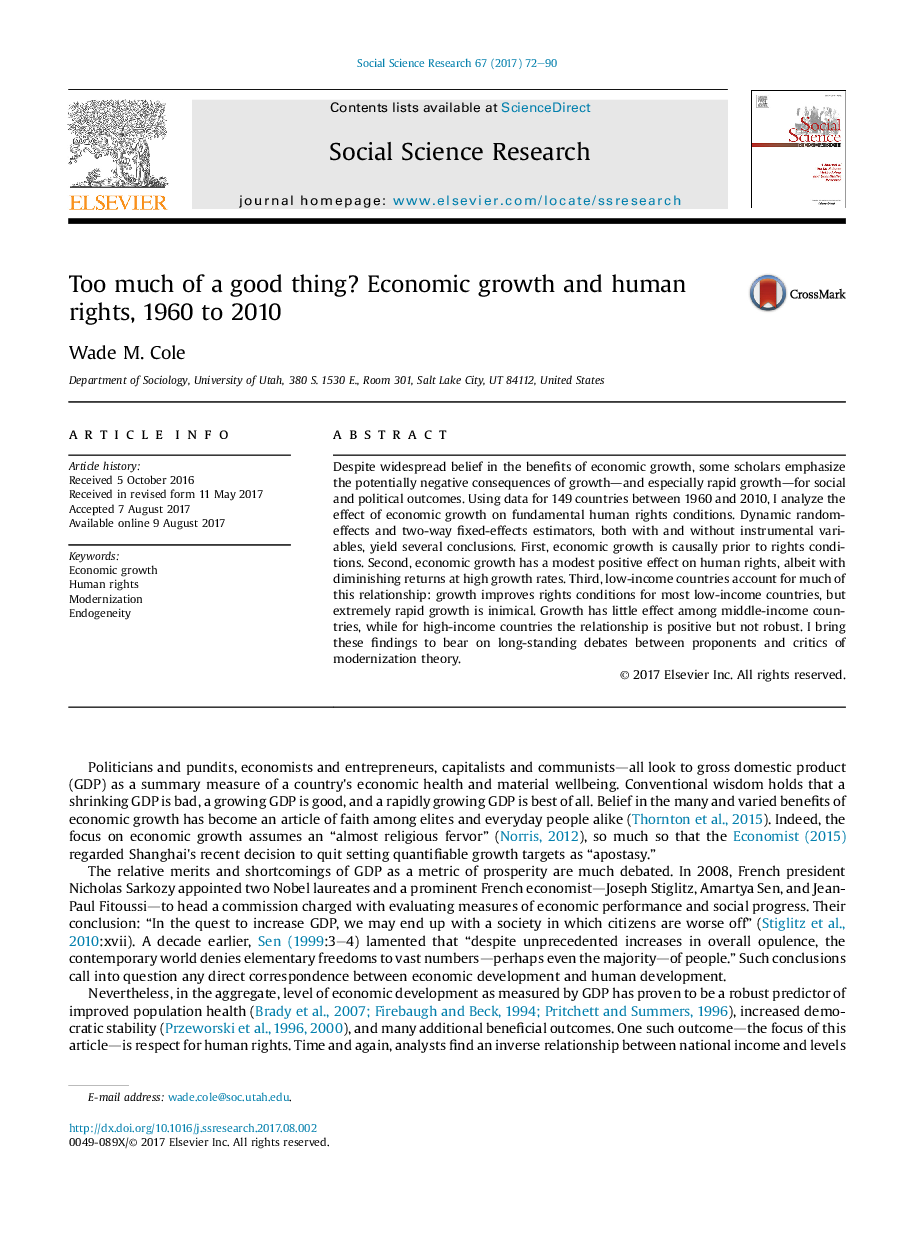| Article ID | Journal | Published Year | Pages | File Type |
|---|---|---|---|---|
| 5046965 | Social Science Research | 2017 | 19 Pages |
Despite widespread belief in the benefits of economic growth, some scholars emphasize the potentially negative consequences of growth-and especially rapid growth-for social and political outcomes. Using data for 149 countries between 1960 and 2010, I analyze the effect of economic growth on fundamental human rights conditions. Dynamic random-effects and two-way fixed-effects estimators, both with and without instrumental variables, yield several conclusions. First, economic growth is causally prior to rights conditions. Second, economic growth has a modest positive effect on human rights, albeit with diminishing returns at high growth rates. Third, low-income countries account for much of this relationship: growth improves rights conditions for most low-income countries, but extremely rapid growth is inimical. Growth has little effect among middle-income countries, while for high-income countries the relationship is positive but not robust. I bring these findings to bear on long-standing debates between proponents and critics of modernization theory.
